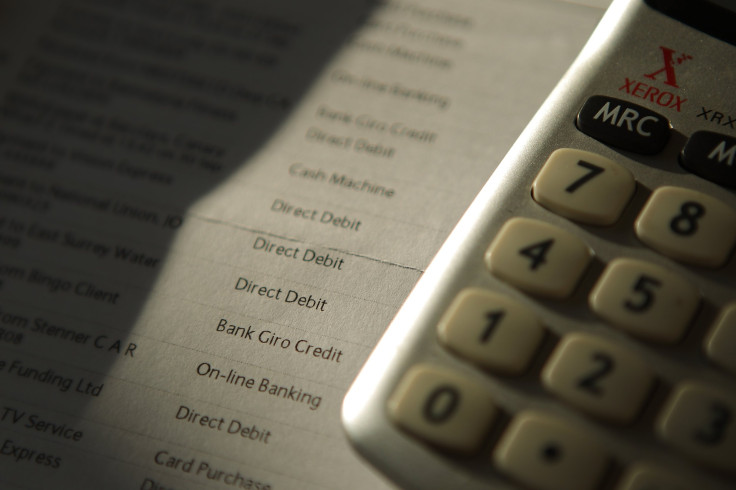The Hidden Danger Of Online Payday Loans: Overdraft Fees

Borrowers who take out loans from online payday lenders already have to worry about notoriously steep interest rates. But as a new federal study found, there’s another potential danger: the risk of racking up hundreds of dollars in bank overdraft charges.
Over an 18-month period, half of all online payday loan consumers were hit with overdraft fees as a result of automatic account withdrawals, a newly released study from the Consumer Financial Protection Bureau found. For these borrowers, penalty fees amounted to $185 over the period examined.
That's the equivalent of a hidden 8.5 percent additional fee on top of the interest and principal paid over the 18 months of consumer bank statements scrutinized by the CFPB.
Worse still: Of the borrowers whose payments failed due to a lack of cash in the bank, 42 percent had their debit accounts closed by their banks, compared with just 6 percent of the broader population.
“Each of these additional consequences of an online loan can be significant, and together they may impose large costs, both tangible and intangible, that go far beyond the amounts paid solely to the original lender,” Richard Cordray, director of the CFPB, said in a statement. “Borrowers should not have to bear the unexpected burdens of being hit repeatedly with steep, hidden penalty fees that are tacked on to the costs of their existing loans.”
The findings add to growing literature on the risks to consumers posed by payday lending. Cordray said that the report, the third from the CFPB on small-dollar lenders, will influence the agency’s ongoing — and contested — efforts to reform payday lending to protect financially distressed consumers.
Online payday loans are the digital equivalent of the cash advance centers that dot low-income neighborhoods, offering loans in the $500 range that come due at or around the borrower’s next payday. Interest rates on the short-term loans can amount to 400 percent as an annual percentage rate, sometimes locking borrowers in a “debt trap” of repeated cash advances to cover previous debts.

In the digital space, payday loans bring new risks. These outfits typically tap into a borrower’s bank account, first to deposit the loan and later to withdraw interest and principal payments. That’s where the fees begin to mount — if the borrower has too little money in her account, the withdrawal attempt is likely to result in an overdraft charge.
But online payday lenders don’t stop after a single rejected withdrawal, the study found. After an initial failure, three-quarters of broke borrowers are hit with a subsequent payment request in the days and weeks to come, even though just 30 percent of these second withdrawal attempts succeed.
From there, the payment requests can mount, despite the fact that by the fifth attempt, 85 percent of debits fail to go through. One in 10 borrowers faced 10 or more withdrawal attempts despite insufficient funds, the study found. And although these can be split across days or weeks, many borrowers face multiple payment requests — and multiple overdraft fees — in a single day.
Of the $185 in average fees extracted from borrowers hit with online payday loan overdraft charges, $39, or 21 percent, stemmed from same-day withdrawal attempts. “Lenders may keep on dinging a consumer’s account over and over again, with each ding costing the consumer a hefty bank fee,” Cordray said.
Last year, the CFPB initiated the process of devising new rules that would reform the small-dollar loan market, and agency officials have signaled that a rule proposal is likely in the coming months. Industry groups representing installment lenders have pre-empted the suggested rules, arguing that closer regulation could harm borrowers’ access to credit.
Guidelines from the CFPB, the consumer-protection agency formed by the 2010 Dodd-Frank Act, are expected to be tough. “The regulatory regime is likely to be onerous enough that many of these firms will need to change how they do business,” Guggenheim Partners analyst Jaret Seiberg wrote in a recent note to clients.
The CFPB’s Consumer Advisory Council is expected to shed more light on where the rule stands in a meeting scheduled for Thursday.
© Copyright IBTimes 2024. All rights reserved.





















